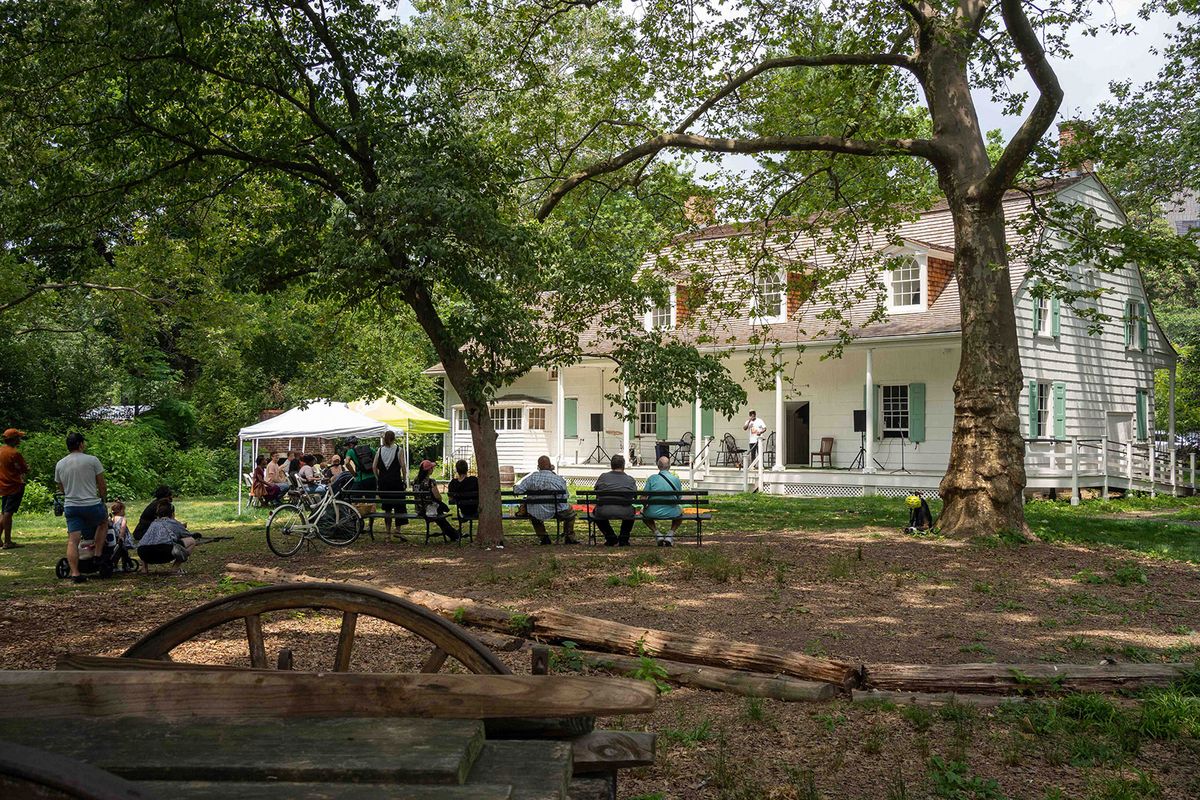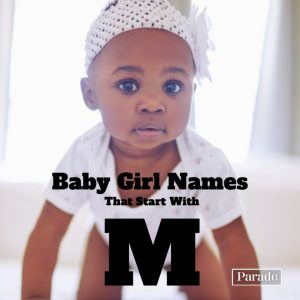Black Dutch last names are often associated with mysterious origins and are sometimes linked to people of mixed European and Native American ancestry. These surnames can vary and may be derived from Dutch, German, or Scandinavian origins.
In the United States, Black Dutch individuals are said to have darker features and may have been mistaken for people of Dutch descent with a darker complexion. This unique blend of heritage has led to the use of the term “Black Dutch” to describe individuals with a mixed background.
These surnames have historical significance and are an intriguing aspect of American cultural heritage.

Credit: www.theartnewspaper.com
Table of Contents
ToggleExploring Black Dutch Last Names
Explore the intriguing origins of Black Dutch last names, including unique Dutch surnames like “de Jong” and “de Vries” reflecting patronymic and toponymic roots. Discover the fascinating variety of Dutch family names and their ethnic roots, tracing back to Proto-Germanic influences and quirky monikers like Gekkehuis and Naaktgeboren.
The concept of Black Dutch ancestry has been a subject of curiosity for many individuals who are tracing their genealogy. In this section, we will delve into the origins, history, and common characteristics of Black Dutch last names, shedding light on this fascinating aspect of family heritage.
What Is Black Dutch Ancestry?
Black Dutch ancestry refers to the presence of African or Indigenous American roots in European lineages, particularly among individuals with Dutch heritage. The term “Black Dutch” was not used to describe a specific ethnic group but rather represented a historical and cultural designation within families. Although the origins of this term remain ambiguous, it is believed to have originated from stories of interracial relationships and individuals with mixed racial identities.
Origins And History Of Black Dutch Last Names
The origins of Black Dutch last names can be traced back to various historical influences and migrations. The Netherlands, being a hub of global trade and colonialism, played a significant role in fostering connections between different cultures and ethnicities. Dutch colonies, such as Suriname and Curacao, were known for their integration of diverse populations, resulting in the blending of African, Indigenous, and Dutch lineages.
During the era of slavery, many individuals of African descent were brought to Dutch colonies and, later, to the United States. As families formed and generations evolved, last names with Dutch origins merged with African or Indigenous names, creating a unique blend. This amalgamation of cultures and naming practices contributed to the emergence of Black Dutch last names as we know them today.
Common Characteristics Of Black Dutch Last Names
Black Dutch last names display several common characteristics that reflect their historical and cultural significance. Some of these characteristics include:
- A fusion of Dutch and African or Indigenous naming traditions
- Integration of Dutch prefixes such as “van,” “de,” or “der” with African or Indigenous surnames
- Reflecting locations or occupations, common among both Dutch and African/Indigenous naming practices
- Presence of unique phonetic sounds or spellings influenced by African or Indigenous languages
These characteristics showcase the rich history and cultural exchange associated with Black Dutch last names, serving as a reminder of the diverse tapestry that makes up individual family lineages.
Unraveling Your Unique Heritage
Welcome to the exploration of Black Dutch last names, an essential gateway to unraveling your unique heritage. Discovering your roots can be an exhilarating journey that provides a deeper understanding of your family history and cultural background.
Tracing Black Dutch Ancestry
Tracing your Black Dutch ancestry can reveal a rich tapestry of historical narratives and traditions. Many individuals with Black Dutch roots have embarked on a quest to unveil the compelling stories embedded within their family’s lineage. Understanding the origins of your last name can provide invaluable insights into your ancestral heritage.
Key Clues In Family Names
Black Dutch last names carry significant clues about your family’s history. By delving into the etymology and historical context of your surname, you can unearth vital information about your ancestors’ migration patterns, occupations, and societal roles. Unlocking the meaning behind your last name can illuminate the legacy of resilience and endurance that has been passed down through generations.
The Significance Of British Sounding Names
Many Black Dutch last names bear a resemblance to British surnames, reflecting the complex interplay of cultural influences and historical migrations. The presence of British-sounding names within Black Dutch ancestry underscores the diverse and interconnected nature of familial lineages. Exploring the origins of these names can shed light on the multifaceted tapestry of your heritage.
Understanding Dutch Last Names
Upon delving into the realm of Dutch last names, one encounters a rich tapestry of history and culture intertwined with each surname. From common surnames with fascinating meanings to the intricate web of patronymic names and the influence of locations on Dutch surnames, it’s a journey that sheds light on the unique heritage of the Dutch people.
Common Dutch Surnames And Their Meanings
- De Jong: Means “the young.”
- Jansen: Derived from Jan’s son.
- De Vries: Refers to someone from a frozen land.
Patronymic Names In Dutch Genealogy
- Patronymic names like “Jansen” indicate the father’s name.
- In Dutch genealogy, these names reflect lineage.
- Each name carries a unique historical significance.
The Influence Of Locations On Dutch Surnames
| Prefix | Meaning |
|---|---|
| de | Refers to “the.” |
| van | Indicates “from” or origin. |
| van der | Signifies “from the.” |
Dutch immigrants to non-Dutch speaking countries often retained these prefixes in their surnames, further enriching their heritage.
Unusual Dutch Surnames
Many Black Dutch last names stand out due to their unusual nature such as Gekkehuis (Madhouse), Naaktgeboren (Born naked), and Uittenbroek (out of his pants). These names have quirky origins and add diversity to Dutch surnames. Understanding the ethnicity of these names contributes to a rich cultural heritage for the Dutch people.
Quirky And Humorous Dutch Last Names
Black Dutch last names are often as intriguing as they are unusual. They may evoke a sense of curiosity and amusement, showcasing the whimsical side of Dutch nomenclature. Embracing an element of playfulness, these names add a touch of character to family lineages, often leaving a lasting impression with their offbeat charm.
Exploring The Origins Of Unusual Dutch Surnames
Unusual Dutch surnames have a rich history that dates back centuries. These names offer a peek into the cultural tapestry of the Netherlands, reflecting various influences such as occupations, locations, and personal characteristics. Each surname encapsulates a unique story, shedding light on the diverse origins and evolution of Dutch family names.
One of the fascinating aspects of these names is their link to specific geographic areas or professions. For example, the surname “Gekkehuis” (Madhouse) might have originated from an ancestor’s occupation within a mental health institution. Similarly, “Naaktgeboren” (Born naked) could signify an ancestor’s straightforward nature or an occupation related to nudity.
Moreover, names like “Borst” (breast), “Uittenbroek” (out of his pants), and “Spring in ‘t Veld” (Jump in the Field) illustrate the lighthearted and humorous approach to naming in Dutch culture. These whimsical surnames not only provide lineage, but also offer a glimpse into the Dutch tradition of embracing individuality and uniqueness.
The Ethnicity Of The Name Dutch
The ethnicity of the name Dutch can be traced back to Proto-Germanic, meaning “of the common Germanic people. ” Dutch surnames often include prefixes like “de” or “van,” indicating a location or origin. Common Dutch last names include “de Jong” and “Jansen.
“
The Origins And Meaning Of The Word Dutch
The word “Dutch” originates from Proto-Germanic, the common ancestor of Germanic languages, meaning “national/popular”.
Understanding The Dutch Ethnic Identity
The term Dutch has roots in various Germanic languages like Old Dutch, Old High German, Old English, and Gothic.
- Common Dutch surnames like “de Jong” are patronymic, while “de Vries” refers to a person’s origin.
- In the Netherlands, prefixes like “de,” “van,” or “van der” may be part of names based on location.
Dutch surnames often have unique and amusing variations, showcasing the culture and creativity of the Dutch people.
The word “Dutch” holds a rich history, reflecting the shared identity and heritage of the Dutch population.

Credit: www.pampers.com
Black Dutch Ancestry And Identity
The term “Black Dutch” has long intrigued individuals with its enigmatic origins and shrouded identity. While its exact meaning is still a subject of debate, it is often used to describe individuals of uncertain or mixed ancestry, possibly involving Indigenous or African American heritage. This unique mixture is seen in their last names as well, which can be traced back to the early settlers in the United States.
Unraveling The Mystery Of Black Dutch Ancestry
Many families have passed down the knowledge that they have Black Dutch ancestry, creating an intriguing puzzle for individuals seeking to trace their roots. The term itself has caused confusion, as it is not connected to any specific region or ethnic group. Through DNA testing and extensive genealogical research, it is now possible to shed light on this ambiguous heritage and uncover the truth behind one’s ancestral past.
Exploring The Connection To German Descent
Although the term “Black Dutch” does not directly indicate an African heritage, some experts believe that its origins are linked to German immigrants who settled in America. These German immigrants were often referred to as “Deutsch,” which translated to “Dutch” in English. This language barrier and miscommunication in early America might have contributed to the misconception surrounding this term. Further research and analysis are required to fully understand the intricacies of this connection.
The Significance Of Pennsylvania Dutch
Another aspect to consider when discussing Black Dutch ancestry is the influence of Pennsylvania Dutch culture. The Pennsylvania Dutch, who are of German descent, played a significant role in shaping American history. Their traditions, dialects, and surnames have left an indelible mark. The Black Dutch may have inherited aspects of this unique heritage, leading to the blending of cultures and identities that we see today.
In conclusion, the Black Dutch ancestry remains a fascinating and complex subject, with much still to be discovered. Through careful research and DNA analysis, individuals are slowly peeling away the layers of mystery, gaining a deeper understanding of their heritage and identity. By exploring the connections to German descent and the significance of Pennsylvania Dutch, we can begin to unravel the captivating story behind Black Dutch last names and their place in American history.
Embracing Change: Afro-dutch Names
For centuries, individuals of African descent in the Netherlands have faced unique challenges, including the erasure of their cultural heritage through the adoption of Dutch last names. However, in recent years, there has been a growing movement among Afro-Dutch individuals to reclaim their identity through name change. This shift not only reflects a desire to embrace their roots but also highlights the importance of acknowledging and celebrating the diverse cultural backgrounds that contribute to the fabric of Dutch society.
Challenges Faced By Afro-dutch Individuals
Afro-Dutch people have long grappled with the challenges of navigating a society that often marginalizes and overlooks their contributions. One significant aspect of this marginalization is the historical practice of assigning Dutch last names to Afro-Dutch individuals, often based on their enslavement or the occupation of their ancestors. These names not only severed connections to their African heritage but also perpetuated a sense of inequality and devaluation.
Having surnames associated with slavery or menial labor has had a lasting impact on Afro-Dutch individuals, as it reinforces negative stereotypes and fosters a sense of otherness. This erasure of their original names and identities has perpetuated a cycle of exclusion and marginalization, making it difficult for Afro-Dutch people to fully integrate into Dutch society and embrace their cultural heritage.
Utrecht’s Initiative For Name Change
Recognizing the importance of empowering Afro-Dutch individuals to reclaim their cultural heritage, the city of Utrecht has recently initiated a program to support the change of their last names. This unprecedented move seeks to rectify historical injustices by providing legal and financial assistance to Afro-Dutch individuals who wish to adopt names that reflect their African roots.
By offering this support, Utrecht aims to create a more inclusive society where individuals of African descent can proudly trace their lineage and embrace their diverse heritage. This initiative acknowledges the power of names in shaping one’s identity and aims to empower Afro-Dutch individuals to define themselves on their own terms.
The Impact And Significance Of New Names
The adoption of new names by Afro-Dutch individuals holds deep significance for both individuals and their communities. These new names serve as a tangible symbol of reclaiming one’s identity and can foster a sense of belonging and pride.
Furthermore, the adoption of African names can serve as a powerful act of resistance against the historical erasure of Black Dutch culture. By embracing their African roots, Afro-Dutch individuals challenge societal norms and assert their rightful place in Dutch society.
Moreover, the visibility of Afro-Dutch individuals with African names can challenge stereotypes and break down barriers, promoting understanding and acceptance among different communities. This shift towards embracing Afro-Dutch names presents a positive step towards fostering a more inclusive and equitable society.

Credit: www.nike.com
Frequently Asked Questions Of Black Dutch Last Names
What Is A Common Dutch Last Name?
One of the most common Dutch last names is “de Jong” which is a patronymic name. Other common Dutch last names include “Jansen” and “de Vries,” which have different meanings based on their origins. Dutch last names often include prefixes like “de” or “van” based on location.
How Do You Know If A Last Name Is Dutch?
To determine if a last name is Dutch, look for common Dutch surnames like “de Jong”, “Jansen”, or “de Vries”. Dutch surnames based on locations often have prefixes like “de”, “van”, or “ter”. Dutch immigrants in non-Dutch-speaking countries often have these prefixes incorporated into their surnames.
What Are The Unusual Dutch Surnames?
Unusual Dutch surnames may include Gekkehuis (Madhouse), Naaktgeboren (Born naked), Borst (breast), Uittenbroek (out of his pants), and Spring in ‘t Veld (Jump in the Field).
What Is The Ethnicity Of The Name Dutch?
The ethnicity of the name Dutch originates from Old Dutch and means “(of) the common (Germanic) people. “
Conclusion
In the diverse world of Dutch surnames, the history and origins of Black Dutch last names continue to fascinate many. From patronymic names like “de Jong” to quirky surnames such as “Madhouse,” the Dutch nomenclature provides a rich tapestry of ancestry.
Whether pursuing genealogy or simply marveling at the unique monikers, the Dutch last names are a mosaic of cultural heritage and linguistic evolution.

Mother of Two children. I’m a former teacher with a background in child development and a passion for Good parenting. I understand child development and know how to develop activities to help children learn and grow. Spare time, I enjoy spending time with my family, reading, and volunteering in my community. Read More







